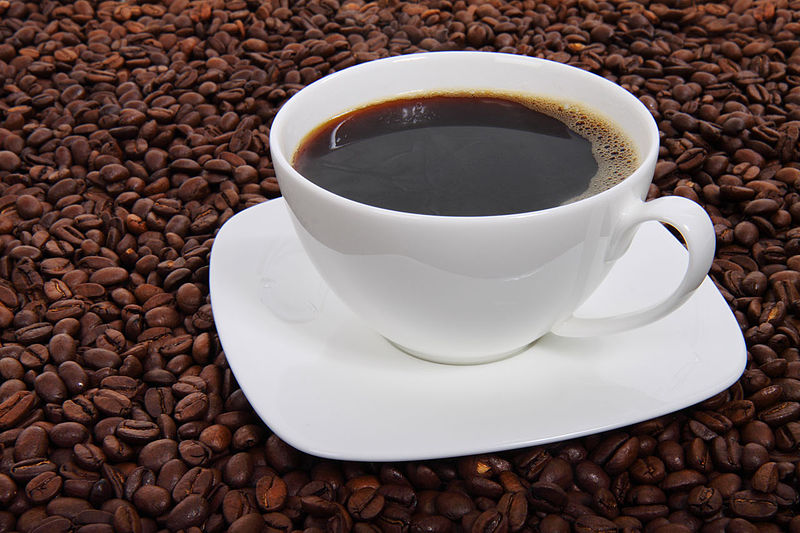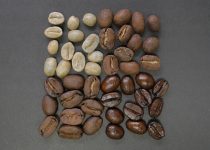Coffee For Weight Loss and Amazing Lifestyle
Imagine a world where your daily cup of joe not only kick starts your morning, but also helps you shed those stubborn pounds. Sound too good to be true? Think again. In this article, we will explore the exciting topic of coffee for weight loss, revealing the surprising benefits that this beloved beverage can offer in your journey towards a healthier, happier you.
Delving into the science behind its potential weight loss properties, we will discover how drinking coffee for weight loss can boost your metabolism, provide a natural energy boost, and even suppress your appetite. we’ll also explore the different types of coffee that are most effective for weight loss along with practical tips on how to incorporate this wonder drink into your daily routine. Prepare to be amazed by the power of coffee for weight loss.

Benefits of Coffee for Weight Loss
Boosts Metabolism
If you’re looking to shed those extra pounds, then coffee for weight loss might just be your secret weapon. One of the key benefits of coffee for weight loss is that it boosts your metabolism. A faster metabolism means that your body is able to burn calories more efficiently, helping you to lose weight. The caffeine found in coffee stimulates the central nervous system, which in turn increases your metabolic rate. So, that morning cup of joe can actually help you burn more calories throughout the day.
Increases Fat Burning
Coffee is known to boost your metabolism, but it also increases fat burning. When you consume coffee, the caffeine triggers the release of fatty acids from your fat tissues. These fatty acids then enter your bloodstream, where they are used by your body as fuel. By increasing the availability of fatty acids for energy, coffee helps to enhance the fat-burning process. So, next time you’re hitting the gym, consider sipping on a cup of coffee beforehand to maximize your fat-burning potential.
Suppresses Appetite
Another benefit of coffee for weight loss is that it can help to suppress your appetite. The caffeine in coffee acts as a natural appetite suppressant, making you feel less hungry. This can be particularly helpful if you’re trying to cut down on your calorie intake. By reducing your appetite, coffee can assist you in sticking to your weight loss goals and preventing unnecessary snacking throughout the day. So, instead of reaching for a bag of chips, pour yourself a cup of coffee to keep those cravings at bay.
Choosing the Right Coffee for Weight Loss
Opt for Black Coffee
When it comes to choosing the right coffee for weight loss, the simplest option is often the best. Opting for black coffee without any added ingredients is the way to go. Black coffee is calorie-free and provides you with all the metabolism-boosting benefits without any extra calories from cream or sugar. By avoiding those extra calories, you can help create a calorie deficit and promote weight loss.
Avoid Adding Cream and Sugar
If you’re used to adding cream and sugar to your coffee, it may be time to reconsider. Cream and sugar can significantly increase the calorie content of your coffee and hinder your weight loss progress. Just one tablespoon of cream and sugar can add up to 50 calories or more. Over time, these extra calories can really start to add up. So, to maximize the weight loss benefits of coffee, try to enjoy it black or with a healthier alternative like almond milk or a natural sweetener.
Consider Organic Coffee for weight loss
When choosing the right coffee for weight loss, it’s worth considering organic coffee. Organic coffee is grown without the use of synthetic fertilizers and pesticides, making it a more natural and potentially healthier option. Choosing organic coffee ensures that you’re avoiding potentially harmful chemicals that can negatively impact your health. While the direct link between organic coffee and weight loss is still being studied, opting for organic coffee as part of a healthy lifestyle can contribute to overall well-being.
Caffeine and Weight Loss
Effect of Caffeine on Metabolism
Caffeine, the active ingredient in coffee, has been shown to have a positive impact on metabolism. It stimulates the central nervous system and increases the thermogenic effect, which is the energy expended during digestion, absorption, and distribution of nutrients. By boosting your metabolism, caffeine helps you burn more calories and promotes weight loss. However, it’s important to note that the effects of caffeine on metabolism may vary from person to person.
Enhanced Exercise Performance
In addition to its metabolism-boosting properties, caffeine is also known to enhance exercise performance. Coffee can improve endurance, increase stamina, and reduce fatigue, allowing you to work out harder and for longer periods of time. This improved performance can lead to greater calorie burn and ultimately support your weight loss goals. So, the next time you’re gearing up for a workout, consider having a cup of coffee beforehand to give yourself that extra energy boost.
Caffeine as an Appetite Suppressant
Feeling hungry can be a major obstacle when it comes to weight loss. Luckily, caffeine can help to suppress your appetite and curb those hunger pangs. Studies have shown that caffeine can reduce feelings of hunger and increase feelings of fullness, leading to a decrease in calorie intake. By keeping your appetite in check, consuming coffee for weight loss works by extra caffeine that assists you in maintaining a healthy eating pattern and contribute to healthy lifestyle journey.
Timing and Frequency of Coffee Consumption
Morning Coffee and Metabolism
Starting your day with a cup of coffee can be a great way to kickstart your metabolism. Morning coffee has been found to increase metabolic rate for a few hours after consumption, which means you’ll be burning more calories throughout the day. It’s important to note that the effects of coffee on metabolism tend to diminish over time, so it’s best to limit your coffee intake to one or two cups in the morning to reap the maximum benefits.
Pre-Workout Coffee
If you’re looking to maximize your workout performance, having a cup of coffee before hitting the gym can be beneficial. The caffeine in coffee can improve focus, endurance, and energy levels, allowing you to push yourself harder during your workout. It’s important to time your coffee consumption properly so that the effects kick in a few minutes before your exercise session. Be mindful not to consume too much caffeine, as it can lead to jitters or stomach discomfort.
Limiting Late afternoon and Evening Consumption
While coffee can provide a much-needed energy boost during the day, it’s important to be mindful of late afternoon and evening consumption. The stimulating effects of caffeine can interfere with your sleep quality if consumed too close to bedtime. To ensure a good night’s sleep, it’s recommended to limit your coffee intake in the late afternoon and evening. Opt for decaffeinated coffee or herbal tea instead to avoid any disruptions to your sleep routine.
Recommended Dosage of Coffee for Weight Loss
Moderate Coffee Consumption
Like with most things, moderation is key when it comes to coffee consumption for weight loss. The recommended daily intake of caffeine for most adults is around 400 milligrams, which is roughly equivalent to four cups of coffee. However, it’s important to listen to your body and adjust the dosage based on your individual tolerance and sensitivity to caffeine. It’s always a good idea to consult with a healthcare professional for personalized guidance.
Be Mindful of Caffeine Sensitivity
While coffee can be a great item in your tool box for weight loss, it’s important to be mindful of individual caffeine sensitivity. Some people are more sensitive to the effects of caffeine and may experience side effects such as jitters, increased heart rate, or sleep disturbances. If you notice any adverse effects from coffee consumption, it may be a sign that you need to reduce your intake or switch to decaffeinated options. Pay attention to how your body responds and make adjustments accordingly.
Don’t consume too much coffee for weight loss
While drinking coffee for weight loss can also provide numerous other health benefits, it’s important not to overdo it. Excessive intake of caffeine can lead to negative side effects such as anxiety, irritability, and digestive issues. It’s recommended to consume coffee in moderation and be mindful of your total caffeine intake from all sources, including other beverages and foods. Remember, coffee is just one piece of the puzzle when it comes to weight loss, and a balanced approach is key for long-term success.
Potential Risks and Considerations
Caffeine Addiction and Withdrawal
Coffee contains caffeine, which is a mildly addictive substance. Regular and excessive coffee consumption can lead to dependence, and sudden withdrawal can cause symptoms such as headaches, fatigue, and irritability. To minimize the risk of caffeine addiction and withdrawal, it’s important to consume coffee in moderation and gradually reduce your intake if needed. However, for most individuals, moderate coffee consumption is unlikely to lead to addiction or withdrawal symptoms.
Impact on Sleep Quality
As mentioned earlier, caffeine can interfere with sleep quality if consumed too close to bedtime. The stimulating effects of caffeine can make it difficult for some individuals to fall asleep or experience deep, restful sleep. To ensure a good night’s sleep, it’s recommended to limit caffeine intake in the late afternoon and evening. If you’re particularly sensitive to caffeine, you may need to avoid it altogether during the latter part of the day.
Individual Sensitivity to Coffee
Individuals may vary in terms of their sensitivity to coffee and caffeine. Some people may tolerate coffee well and experience the desired benefits, while others may be more sensitive and experience side effects even with moderate consumption. It’s important to listen to your body and pay attention to how you feel after consuming coffee. If you notice any adverse effects or discomfort, it may be necessary to reduce your coffee intake or opt for alternative beverages.
Combining Coffee for Weight Loss with other Healthy Habits
Balanced Diet and Regular Exercise
While coffee can be a helpful tool for weight loss, it’s important to remember that it’s not a magic solution on its own. To achieve sustainable weight loss, it’s essential to combine coffee consumption with a balanced diet and regular exercise. Coffee can provide an extra boost of energy and help suppress your appetite, but it should not replace nutritious meals or regular physical activity. Incorporate coffee into a healthy lifestyle that includes nutrient-rich foods and a variety of exercises for optimal results.
Hydration and Coffee
Coffee is known to have a diuretic effect, which means it can increase urine production and potentially contribute to dehydration. To counteract this, it’s important to stay hydrated by drinking plenty of water alongside your coffee consumption. Aim to balance your coffee intake with an adequate amount of water throughout the day to ensure optimal hydration. Staying properly hydrated is important for overall health and especially if you’re using coffee for weight loss which can support your effort.
Avoiding High-Calorie Coffee Beverages
While black coffee is calorie-free, that’s not the case for many popular coffee beverages. Be mindful of the added calories and sugars in flavored coffees, lattes, and other specialty drinks. These high-calorie coffee beverages can easily sabotage your weight loss efforts and contribute to weight gain. Opting for black coffee or using healthier alternatives like almond milk and natural sweeteners can help you avoid unnecessary calories and enjoy drinking coffee for weight loss guilt free.
Other Weight Loss Supplements and Alternatives
Green Tea as an Alternative
If coffee isn’t your cup of tea (pun intended), green tea can be a great alternative when it comes to weight loss. Green tea contains a moderate amount of caffeine and is rich in antioxidants, which can have beneficial effects on metabolism and fat oxidation. Like coffee, green tea can boost your energy and help suppress your appetite. Incorporating green tea into your daily routine alongside a healthy lifestyle can support your weight loss journey.
Protein Shakes and Meal Replacement Options
Protein shakes and meal replacement options can be another alternative to coffee when it comes to weight loss. These products are typically low in calories, high in protein, and can help you feel full and satisfied. They can be a convenient option for those on-the-go or as a post-workout snack. However, it’s important to choose high-quality protein shakes and meal replacements that are low in added sugars and artificial ingredients. As with any dietary changes, it’s best to consult with a healthcare professional for personalized advice.
Natural Fat Burners
In addition to coffee and alternative beverages, there are various natural fat burners that can support you while drinking coffee for weight loss. Ingredients such as green coffee bean extract, garcinia cambogia, and green tea extract are commonly found in fat-burning supplements. While these supplements may have some positive effects on weight loss, it’s important to remember that they are not a substitute for a healthy diet and regular exercise. As with any supplement, it’s important to do thorough research and consult with a healthcare professional before use.
Studies on drinking Coffee for Weight Loss
Findings from Scientific Studies
Numerous scientific studies have explored the effects of drinking coffee for weight loss, metabolism, and appetite suppression. These studies have shown promising results in terms of coffee’s ability to boost metabolism, increase fat burning, and reduce appetite. However, it’s important to remember that individual results may vary and more research is needed to fully understand the mechanisms behind these effects. While consuming coffee for weight loss is very helpful for overall health, it should be combined with a holistic approach to achieve sustainable results.
Comparison with Other Weight Loss Methods
When it comes to weight loss, there isn’t a one-size-fits-all solution. Coffee can be a beneficial addition to a weight loss regimen, but it’s important to compare its effects with other weight loss methods. Each individual may respond differently to various approaches, and what works for one person may not work for another. It’s crucial to consider factors such as lifestyle, preferences, and overall health when choosing the right weight loss method. Working out a diet plan that integrates drinking coffee for weight loss by seeking out a healthcare professional or registered dietitian can provide more personalized guidance and support.
Long-Term Effects and Sustainability
While coffee can provide short-term benefits for weight loss, it’s important to consider the long-term effects and sustainability. It’s unlikely that coffee alone will lead to significant and sustainable weight loss. Instead, drinking coffee for weight loss should be part of a holistic approach that includes a balanced diet, regular exercise, and other healthy habits. Sustainable weight loss is about creating a healthy lifestyle that you can maintain in the long run. Coffee can be helpful for health, but it’s not a standalone solution.
Conclusion
In conclusion, coffee can be a valuable tool for weight loss when used in conjunction with a healthy lifestyle. Using coffee for weight loss works by boosting metabolism, increasing fat burning, and suppresses appetite which supports your weight loss goals. By choosing the right coffee, consuming it in moderation, and being mindful of individual sensitivity, you can maximize the benefits of coffee for weight loss. However, it’s important to remember that coffee is not a magic solution and should be combined with a balanced diet, regular exercise, and other healthy habits for long-term success. So go ahead, enjoy that morning cup of coffee and make it a part of your weight loss journey.



